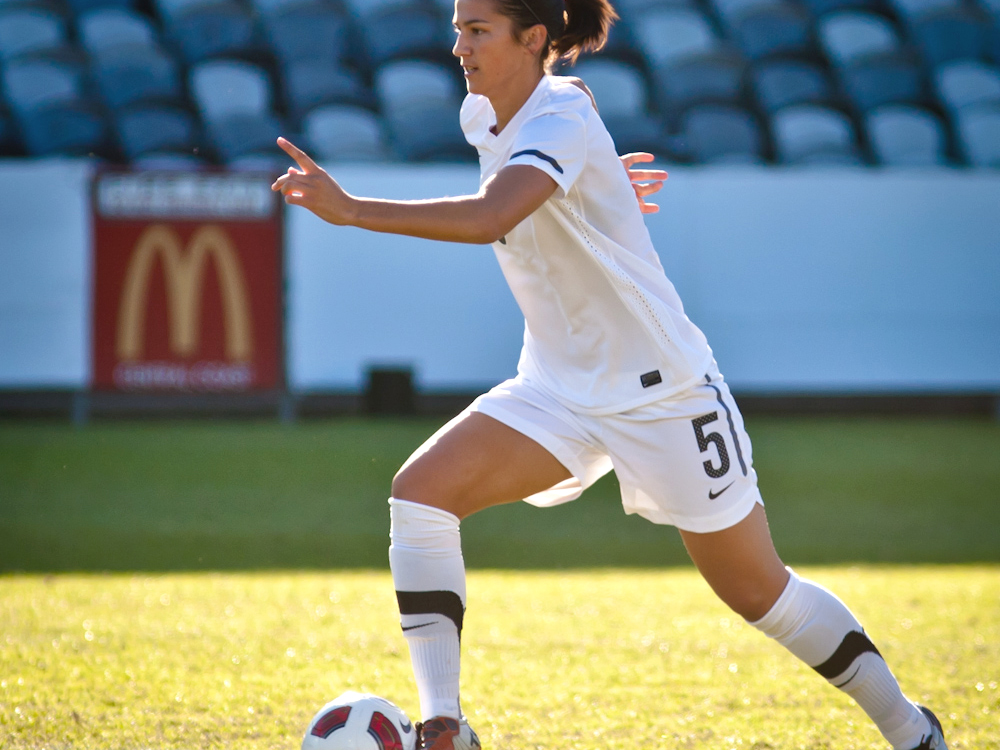

WELLINGTON: The decision by captain Abby Erceg to walk away from the New Zealand women’s soccer team at the age of 27 did not come as a shock to sports academic Sarah Leberman, who views her experience as typical for female athletes in the country.
Although a professional, Erceg will hang up her international boots later this week because she believes New Zealand Football did not value the Football Ferns, who routinely make Olympics and World Cup tournaments, as highly as the men’s team.
“I’m not surprised about it,” Leberman said ahead of Wednesday’s launch of the Women in Sport Aotearoa foundation, an advocacy group aimed at challenging inequity in sport. “The reality is that if you are a woman and a top athlete, it’s very difficult to make a living from your sport.”
Erceg’s retirement sparked a debate in New Zealand. Pundits challenged her. Professional sport, outside of rugby, in the country is virtually non-existent, they argued.
Many elite athletes, particularly in Olympic sports, require part-time jobs and Leberman, a Massey University academic who also has experience in hockey administration, could only agree. “There are a lot of challenges for our athletes in New Zealand,” she said. “In some sports you do have the opportunity to make some money but most don’t make enough to live on.
“There does come a point where they have to make a decision as to whether they can sustain that.”
New Zealand’s closest neighbour Australia has invested heavily in women’s sports in recent years with the launch of a women’s Twenty20 cricket competition, while a women’s Australian Rules competition started earlier this year.
UNDERVALUED, UNDER UTILISED
Erceg’s decision, Leberman and her co-founder Julie Paterson believe, simply further underlined the point that in New Zealand, women’s sport remains undervalued, under utilised, underfunded and under the radar.
Years of grappling with those issues led the pair to establish the foundation, which was launched on International Women’s Day.
The New Zealand organisation is modelled on the Women’s Sports Foundation established in the US by tennis great Billie Jean King in 1974, and the Tucker Centre for Research on Girls & Women in Sport at the University of Minnesota.
Leberman said its goal was to be the ‘go to’ place for research into women in sport in New Zealand.
Ultimately, they hope, the research will be a basis from which they can advocate for more funding, programmes, leadership roles and commercial opportunities for women’s sport.
It is something that Paterson, who runs netball in New Zealand’s largest population centre of Auckland, was keen to examine after trying and failing to attract the same level of commercial or sponsorship support as male-dominated sports.
“For years, myself and my board chair and been sitting here looking at what we do, looking at our commercial proposition... and asking ‘why do we find it so hard to get money into our sport’,” Paterson said.
“Why is there such a lack of equity in terms of the funding and commercial money that comes into our game, so I took a step back and realised there are a whole stack of reasons.”
Paterson, who has spent 11 years in netball administration, said it was typically men who were making sponsorship decisions and they tended to undervalue women’s sports.
The media also under-reported women’s sports, while there were not enough high-ranking women with influence in business. — Reuters
Oman Observer is now on the WhatsApp channel. Click here



